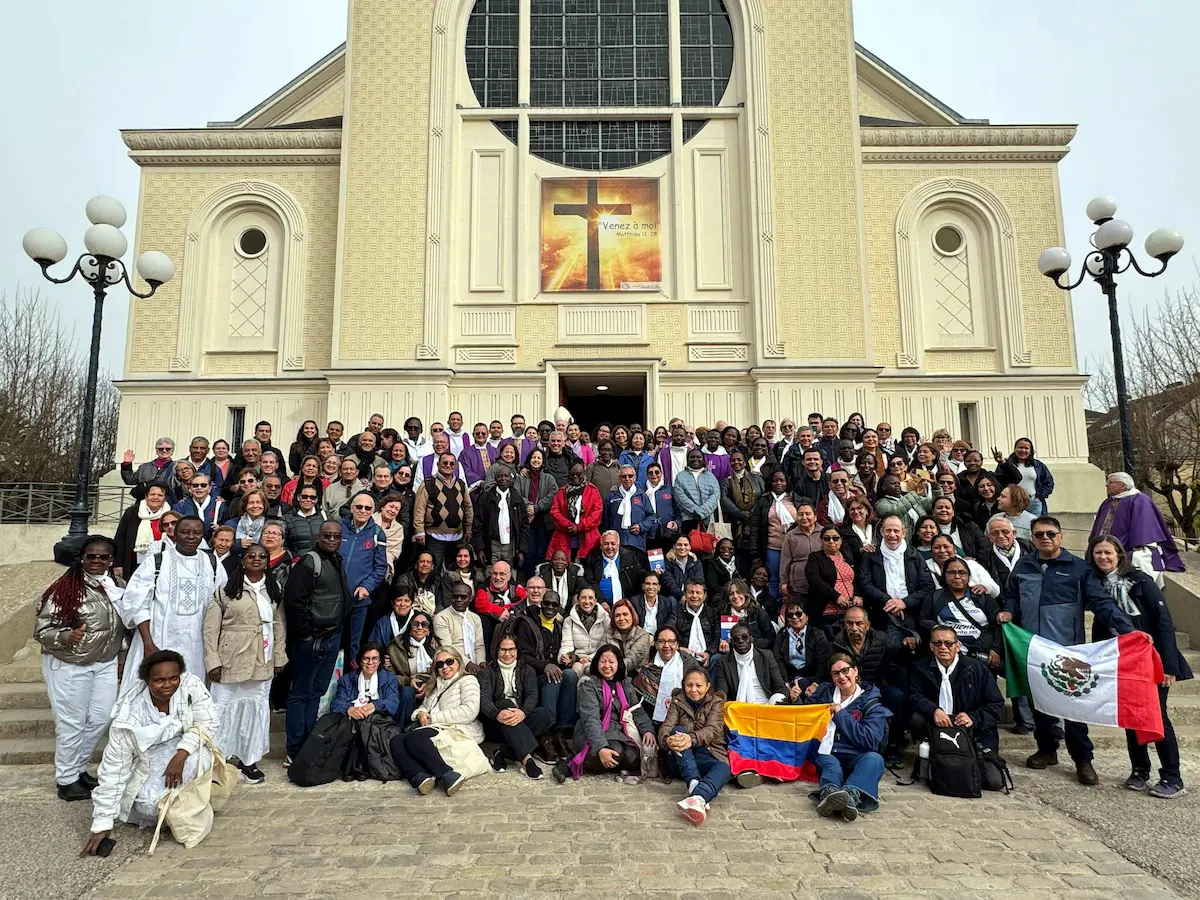


It's an immense joy to be in Douvres-la-Délivrande on March 25, the culminating day of our pilgrimage of hope, the anniversary of the founding of the Congregation in 1643 when Jean Eudes and his first 5 companions made the pilgrimage to this Marian shrine, and of course the most important, as Jean Eudes wrote in the Mémorial des bienfaits de Dieu, "the day on which the Son of God became incarnate, and the Blessed Virgin was made Mother of God."
This is how John Eudes understands the solemnity of the Annunciation: "the day on which the Son of God became incarnate, and the Blessed Virgin was made Mother of God." March 25 is our birth certificate, and this choice made by John Eudes is characterized by 3 precise elements that tell us our identity and our mission.
When I say "our" or "we", I mean all Eudists, incorporated and associated, sharing together in fraternal life, spirituality and mission. I say it again solemnly, as I have said and written many times: associates are a gift from God for our Congregation: the Lord is the Superior of the Congregation and His will is that there should be lay people and priests associated with the Eudist charism, who incarnate this charism in new missions, who spread it as never before. It's an immense thanksgiving that we send up to Jesus and Mary, our superiors, for the gift of the Congregation with this renewed face given to it by the communion between incorporated members, candidates and associates.
Fr. Jean-Michel Amouriaux, c.j.m.
General Superior
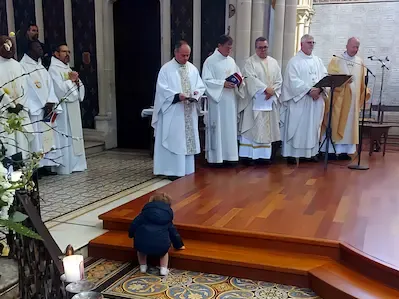

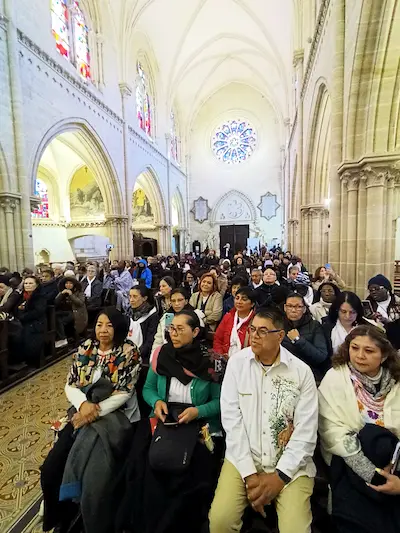
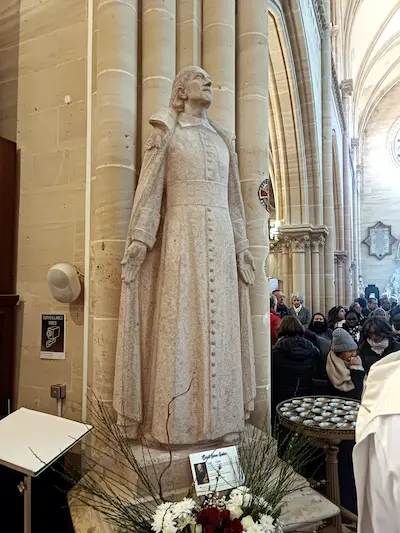
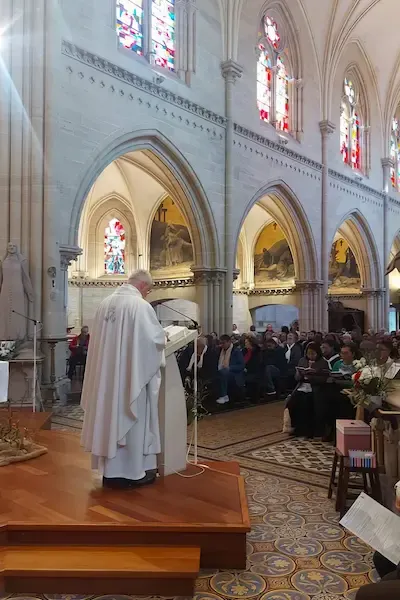
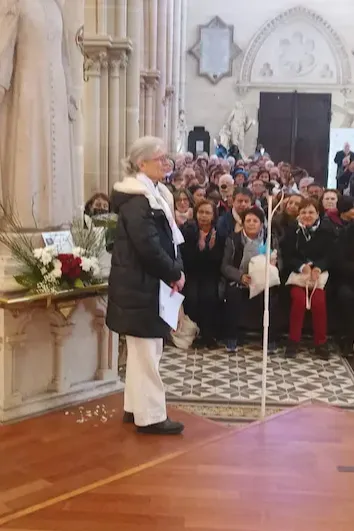
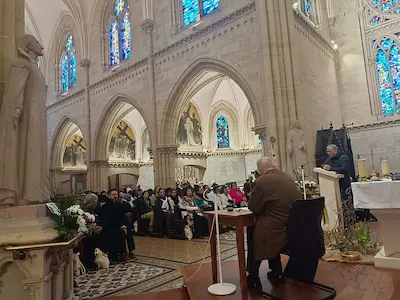
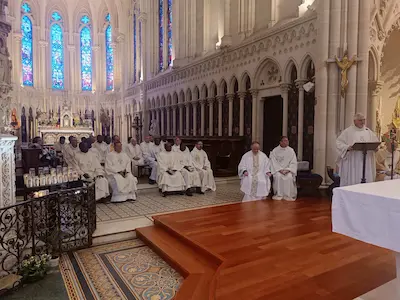
Let's rejoice!
2025, a year to commemorate important anniversaries in the life of the Church, in the life of the Congregation of Jesus and Mary
2025, the Jubilee Year of the Universal Church, Pilgrims of Hope
2025, Centenary of the canonization of Saint John Eudes
2025, International gathering of Eudist Associates with burning hearts, in the footsteps of Saint John Eudes
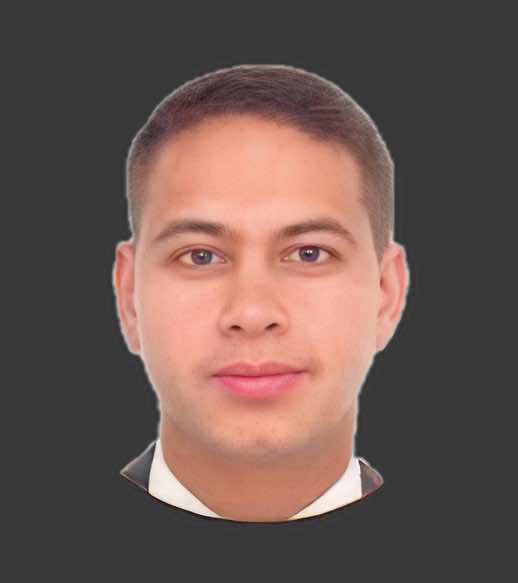
March 24 conference: The holy friend who inspires us to connect to God's Heart
Dear brothers and sisters. We have been on pilgrimage with love, with piety and with faith in these lands of France where St. John Eudes walked. As this pilgrimage is called, we have been following in his footsteps. To follow in the footsteps of St. John Eudes is to go on the path of holiness in the way that our friend invites us. It is not just walking in the footsteps; it is wanting to be holy, longing and working for the formation of Jesus in us. It is to live the spirituality that this man bequeathed to us and that it is our duty not only to live it, but to spread it and give it to others.
For this occasion, I have been invited to speak about holiness in St. John Eudes, or to speak about St. John Eudes as a model of holiness. In this case, I am not going to do an academic formation. I will not make a treatise and I will not develop a formative moment where I take into account the main aspects of the spirituality of St. John Eudes. I am sure that we have received a very good formation in each of the communities and that we will continue to receive this formation, since the knowledge of our spirituality is never exhausted.
It is my wish to make a reflection more from the heart. To look at St. John Eudes, his life, his attitudes, his love for Jesus and Mary and thus appreciate what he can bequeath to us and what we can learn from him. That is to say, to be inspired by his life to see what he can contribute to us and what he invites us to live as disciples of the Lord in the school of St. John Eudes.
P. Geovany Colorado, c.j.m.
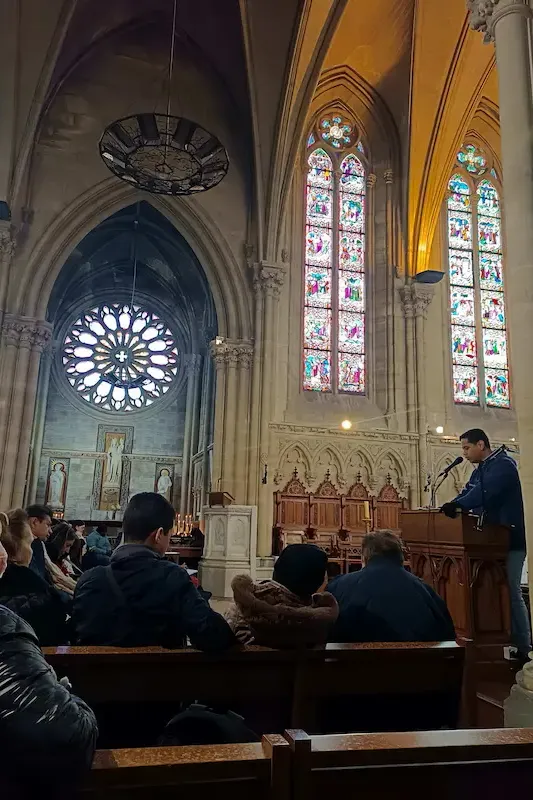
Sanctuaire Notre Dame de la Recouvrance, les Tourailles. Lecture by Father Geovany Colorado.

Prayer vigil last night where everyone laid down a light
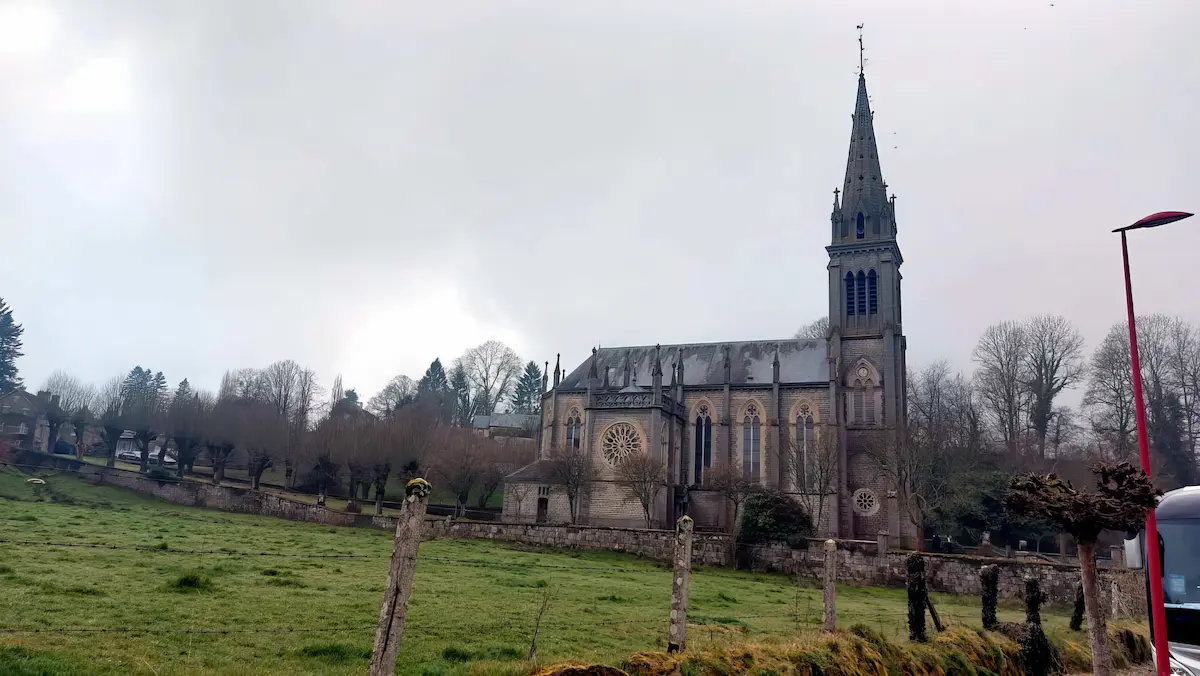
Les Tourailles

March, 22 - Mass at Abbaye aux Dames
presided over by the Bishop of Bayeux-Lisieux, Mgr Jacques HABERT
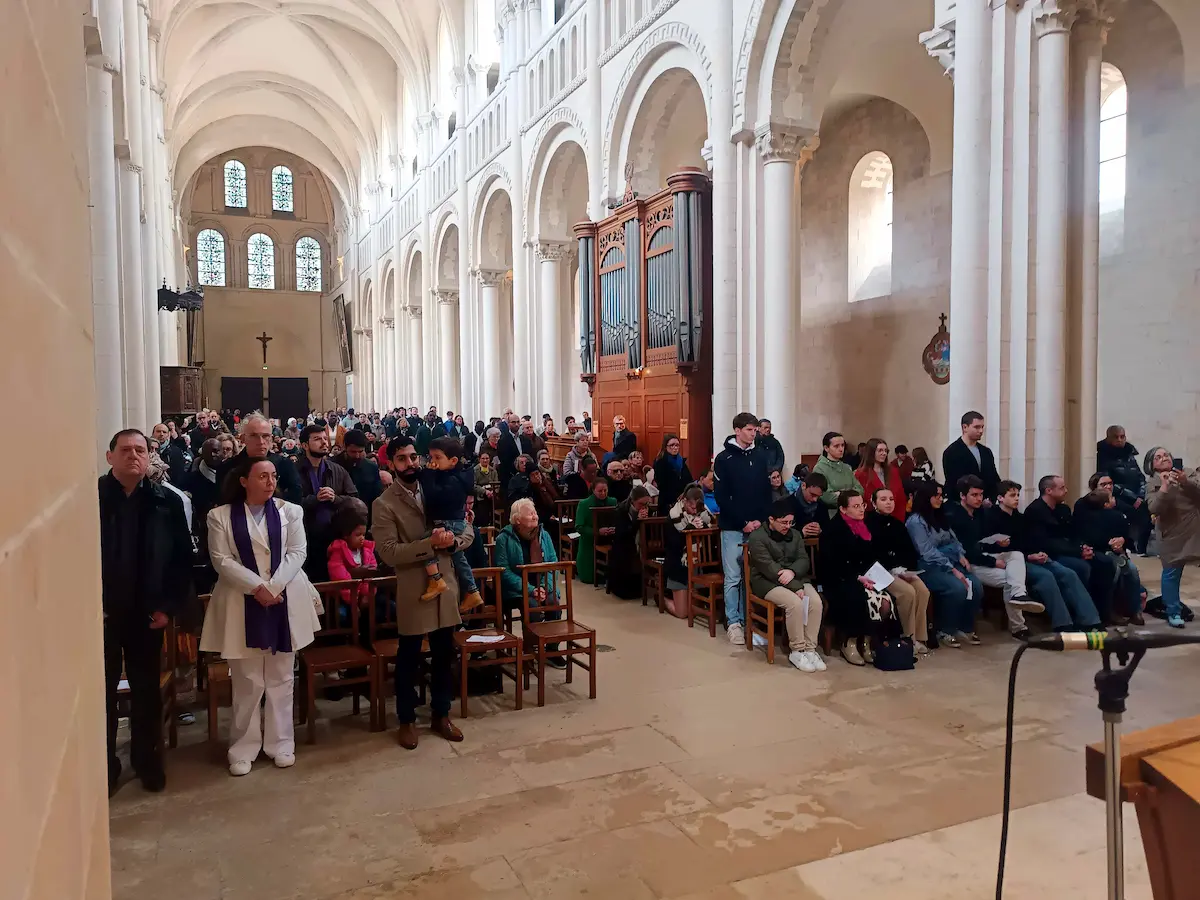
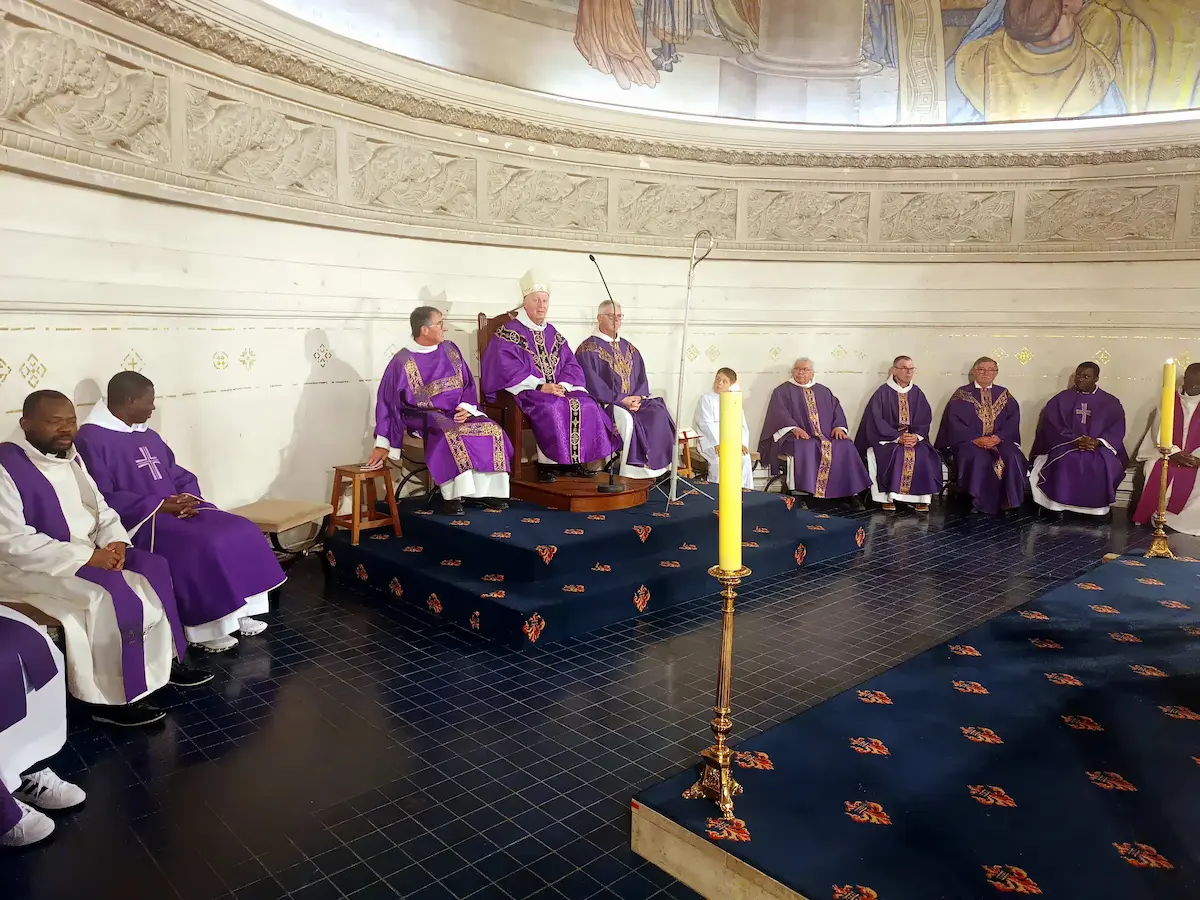
Mass presided over by Mons. Luc Crepy, Eudist, Bishop of Versailles.
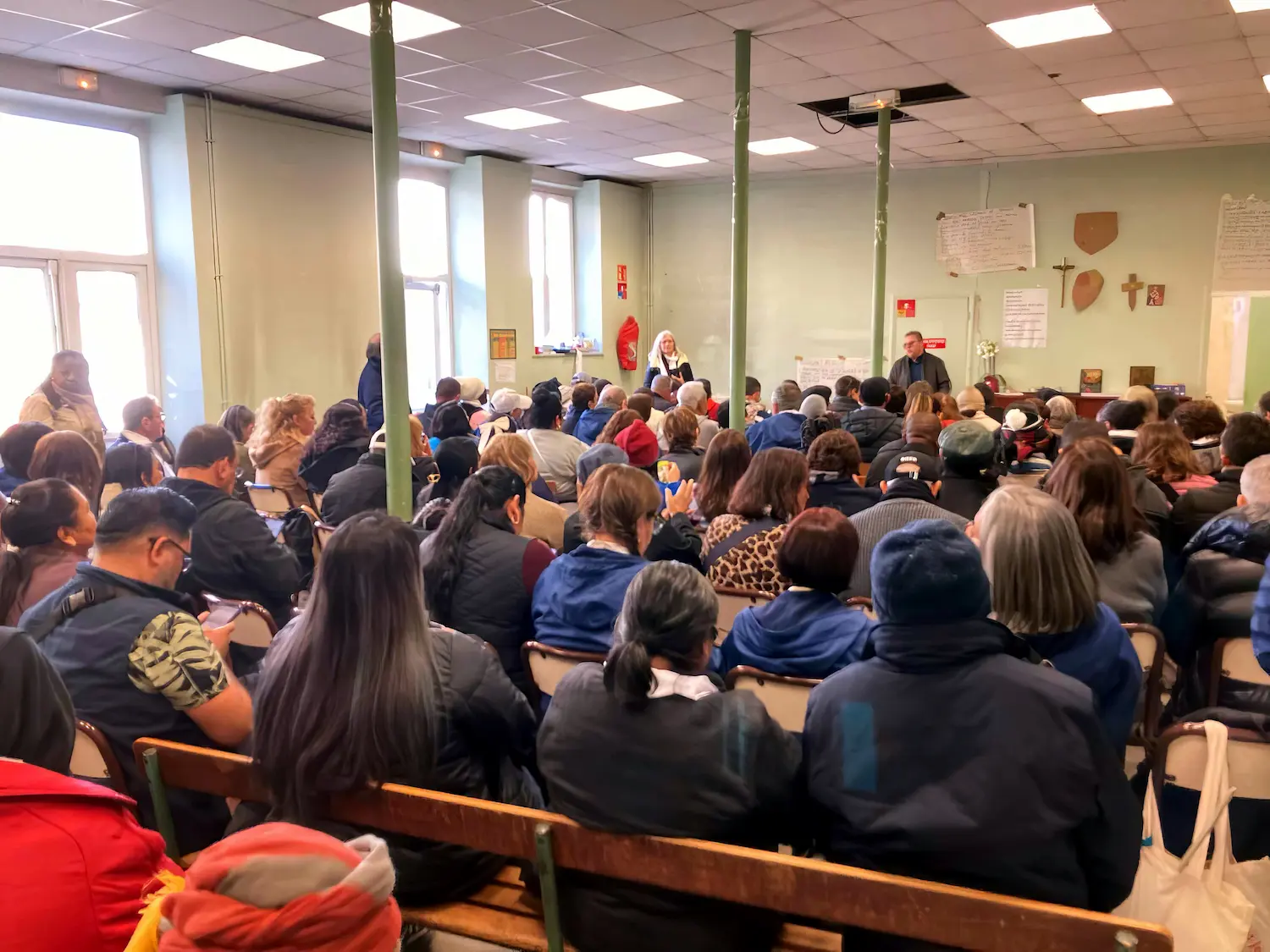

P. Martin Solano

P. Martin Solano

Homily for Thursday, March 20: The Cry of Lazarus and the Heart of Christ
Dear brothers and sisters in Christ, today we are confronted with a parable that challenges us deeply: that of the rich man and the poor man Lazarus. This story, told by Jesus in Luke's Gospel, invites us to examine our relationship with others, especially those most in need. Through Eudist spirituality and the teachings of Saint John Eudes, we discover that this parable is not only a warning against indifference, but also a call to transform our hearts in the love of Christ.
1. The parable: two opposing realities
In this story, Jesus presents us with two characters:
- A rich man, dressed in purple and fine linen, who feasts every day without a care in the world.
- Lazarus, a poor man covered in ulcers, lies at the rich man's door, eager to feed on the crumbs that fall from the table.
Both die. Lazarus is taken to Abraham's bosom, while the rich man, plunged in torment, begs for relief. But it's too late. The gulf between them, once marked by indifference, now becomes an irreversible separation.
A crucial question arises: Where is our heart? On the side of the rich man who ignores suffering, or of Lazarus who hopes for mercy?
2. Eudist Spirituality: A Heart Transformed by Love
Saint John Eudes teaches us that the Heart of Christ is the model of authentic love. In his spirituality, we find three keys to understanding this parable in the light of the Christian faith:
a. The Heart of Jesus as a furnace of love
- For Saint John Eudes, the Heart of Christ is not indifferent to suffering, but compassionate and active.
- The indifference of the rich contrasts with the burning love of Christ, who always leans towards the smallest and most needy.
b. Lazarus: a reflection of the suffering Christ
- Jesus identifies himself with the poor and rejected: "Whatever you did for one of the least of these, you did for me" (Mt 25:40).
- The face of Lazarus is present in so many brothers and sisters who suffer marginalization, poverty and exclusion today.
c. The Heart of Mary, model of service and self-giving
- Mary, like Christ, listens to the cry of the humble and poor.
- In her "Fiat", she teaches us to live with an attentive, welcoming and generous heart.
3 A Call to Conversion of Heart
Pope Francis, in his encyclical Dilexit Nos, reminds us that the love of the Heart of Christ is not passive, but transformative. We cannot be content with a faith of words, but must embody a spirituality of action, justice and mercy.
Saint John Eudes tells us:
"God gave us the Heart of his Son to be our heart."
This means:
- Our faith must be translated into concrete acts of love and justice.
- We cannot remain indifferent to the suffering of our brothers and sisters.
- A true Christian is one who, like Christ, sees, listens and acts.
4. Practical application: how to live this Spirituality of the Heart of Christ?
- Open our eyes and hearts: Who are the "Lazarus" we ignore around us?
- Commit to the most vulnerable: Works of mercy, helping the needy, promoting social justice.
gracia y de bendición.
P. Harold de Jesús Castilla Devoz, c.j.m.
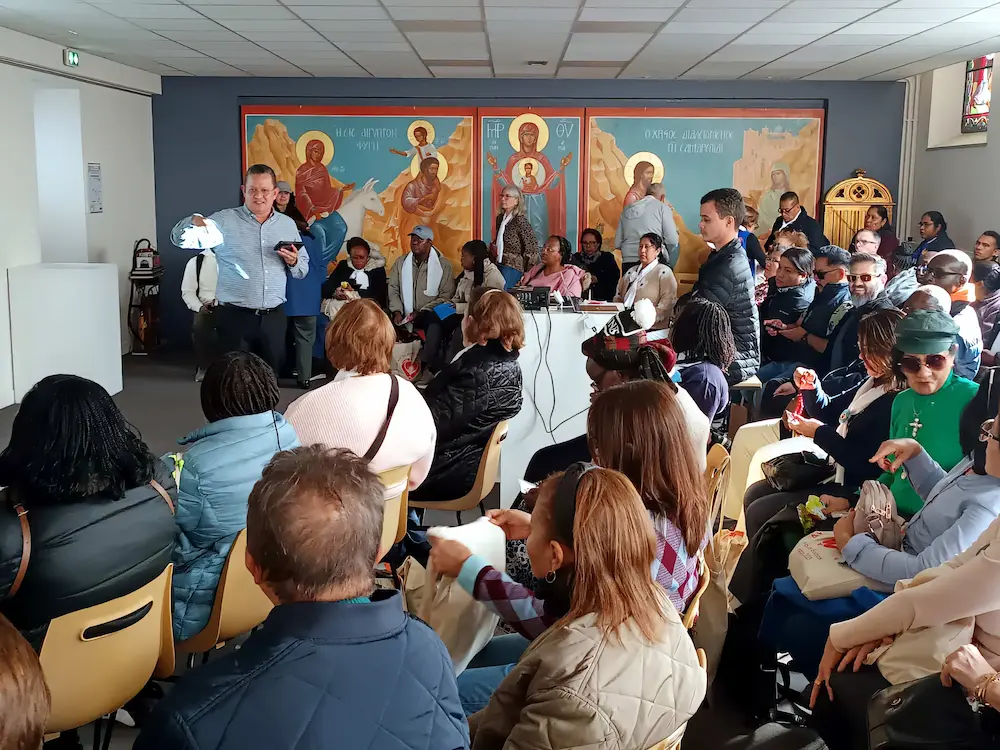
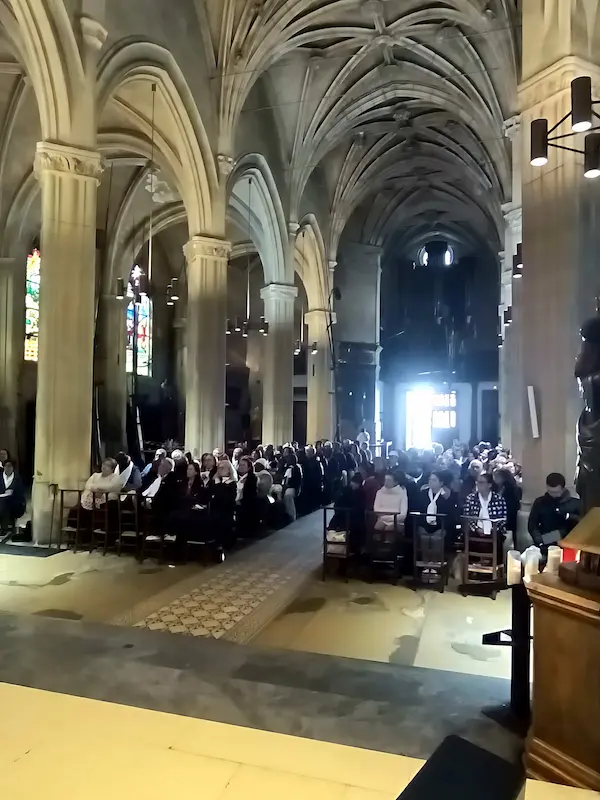
La Messe du 20 mars à Notre Dame des Vertus (Aubervilliers)
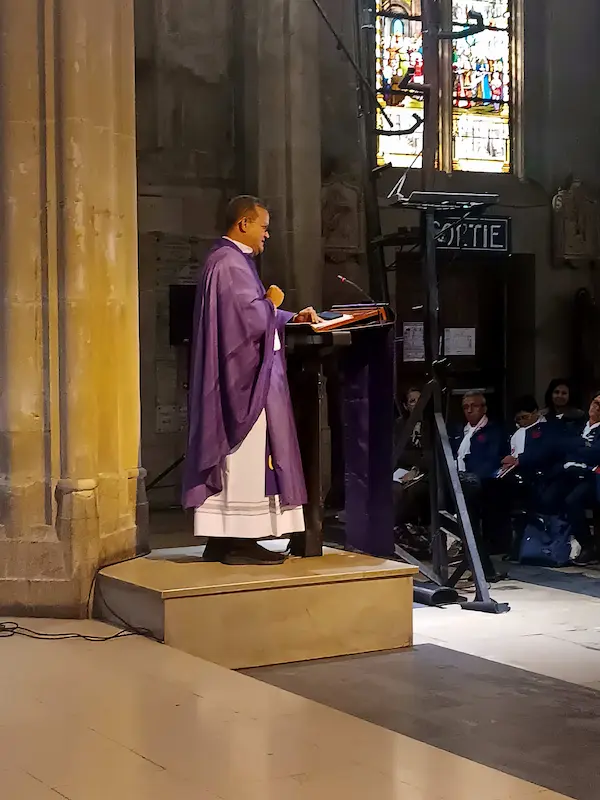
P. Harold Castilla

Chers amis, soyez les bienvenus, nous prenons le temps de nous accueillir, de nous découvrir, de faire connaissance. C’est une grande joie et une grande grâce de pouvoir nous réunir et nous retrouver.
Nous sommes la famille eudiste en pèlerinage sur les pas de notre Fondateur, que nous sommes fiers de célébrer pour le centenaire de sa canonisation, et dans le cadre du Jubilé de l’Église universelle, pour rendre témoignage au Seigneur qui est notre salut et notre bénédiction, et pour renouveler notre joie d’appartenir à la Congrégation de Jésus et Marie.
Nous voici donc en pèlerinage. Il a fallu quitter son lieu de vie et ses repères habituels. Un pèlerinage est une sortie de soi-même, pour aller à la rencontre de réalités nouvelles, peu connues, une autre langue, une autre manière de vivre, en dehors de nos zones de confort, de nos petites habitudes. Nous serons en mouvement pendant cette semaine, en changeant de lieu, de nourriture, de climat, de relation. Chacun a sa propre capacité d’adaptation, et il est certain que c’est un défi de pouvoir vivre l’imprévu et la nouveauté, dans la joie et la fraternité. « La règle des règles est la charité », et cette maxime de saint Jean Eudes reprise dans les Constitutions est notre étoile, notre guide pour avancer. Nous faisons confiance à ceux qui ont préparé ce pèlerinage ; ils ont beaucoup œuvré pour que tout se passe au mieux et nous les en remercions.
Cette expérience de pèlerinage nous enseigne sur notre condition humaine et croyante. Nous sommes de passage sur cette terre, nous avons nos repères et nous nous attachons, mais en vérité, nous sommes des pèlerins. Ce pèlerinage nous le rappelle et nous permet de vivre de manière encore plus profonde le Carême, en mémoire des 40 ans dans le désert du Peuple d’Israël, et les 40 jours de Jésus dans le désert. Saint Jean Eudes nous invite à vivre les 40 jours du Carême justement en communion avec les 40 jours de Jésus dans le désert de Juda après son baptême et avant ses premières prédications du Royaume. C’est aussi le thème du Jubilé de l’Église universelle : nous sommes pèlerins de l’espérance, montrant ensemble le visage d’une humanité diverse et en paix. L’espérance dont le monde a besoin est de rendre possible l’avenir du monde tel qu’il est, dans son intégration croissante. Et c’est aussi notre Jubilé eudiste : pour renouveler la joie d’être Eudistes, de faire partie de ce que Jean Eudes lui-même appelait la petite Congrégation, qui a sa place et sa mission au sein de la grande Église. Les critères de Dieu ne sont pas les nôtres, et comme le disait le Cardinal Joseph Ratzinger dans une conférence sur la nouvelle évangélisation en 2000, citant un proverbe « le succès n’est pas le nom de Dieu ».
Nous voyons ainsi qu’il y a de nombreux enjeux humains et spirituels à cette semaine de pèlerinage. La Congrégation a les yeux tournés vers nous et nous accompagne.
P. Jean-Michel Amouriaux, c.j.m.
Supérieur Général